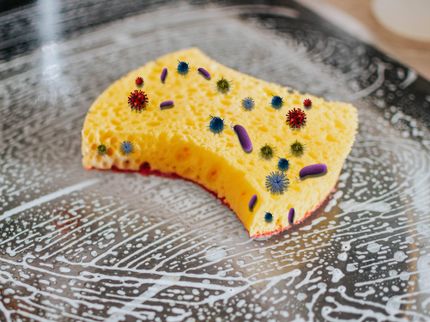Bacteria on the hunt
Research team discovers ‘impossible’ unicellular organism
Advertisement
All higher organisms such as fungi, plants, animals and humans consist of eukaryotic cells. These are cells that have a nucleus and organelles such as mitochondria. Mitochondria supply eukaryotic cells with energy. In contrast to eukaryotes, prokaryotes are unicellular organisms. They have a simpler structure and are mostly significantly smaller than eukaryotes. They have no cell nucleus and no organelles such as mitochondria.
The origin of eukaryotes is considered one of the greatest enigmas in biology: according to current doctrine, two prokaryotes, a so-called Asgard archaeon and a bacterium, are believed to have merged. The bacterium is said to have developed into a mitochondrion. Thanks to its mitochondrion, this eukaryotic ancestor had enough energy available to develop into the more complex cells known today. A defining feature of such complex eukaryotes is endocytosis – the ability to eat other cells. Until now, however, it was deemed energetically impossible for a prokaryotic cell to be capable of endocytosis, as the energy source of the mitochondrion was considered indispensable for this. However, a research team at the University of Jena has discovered prokaryotic bacteria that can eat other cells. The team reports on this surprising discovery in the scientific journal “mBio”.
Planctomycetes: “impossible” prokaryotes
For more than ten years, Prof. Dr Christian Jogler and his team have been pursuing a different approach to explaining eukaryogenesis. The researcher is focussing on the prokaryotic group of planctomycetes, very unusual bacteria that are considered by some scientists to be potential ancestors of eukaryotes due to their unusual cell biology. “The idea of a ‘fusion’ of two different prokaryotes into one eukaryote seems incomprehensible to me from a cell biology perspective,” explains the microbiologist, who conducts research in the “Balance of the Microverse” Cluster of Excellence at the University of Jena. “No one has ever observed anything like this before and such a hybrid would probably not be viable due to the different membrane structures and molecular machineries,” adds Jogler.
Microbe hunters
In 2014, Prof. Dr Jogler's team found novel planctomycetes in Heiligendamm on the Baltic Sea, which provided arguments for the planctomycetal origin of eukaryotes. “These bacteria change their shape, they 'walk' over surfaces and flow around each other.” A team led by Takashi Shiratori from Japan also found and described comparable planctomycetes in 2019. These microorganisms even ate other bacteria and thus seemed to disprove the doctrine that prokaryotes could not be capable of endocytosis for energetic reasons.
“To be honest, I didn't believe Dr Shiratori at first,” says Jogler. He and his team therefore initially tried to disprove the hypothesis of prokaryotic endocytosis. However, after a year of intensive research, the researchers no longer have any doubts about the accuracy of Shiratori's results. In the paper they have now submitted, they present a comparable organism that they have isolated and characterized from the North Sea: Uabimicrobium helgolandensis. These prokaryotes also feed on other bacteria and these organisms should therefore not even exist. The researchers have given this group of unusual planctomycetes the fitting name bacteria of prey.
"By sequencing the genome of Uabimicrobium helgolandensis, we were also able to develop new hypotheses on the molecular mechanism of the absorption of prey bacteria," explains Jogler. He sees the predatory planctomycetes as the microbial Archaeopteryx, a bridge organism between the prokaryotes and eukaryotes, and is convinced that the planctomycetes played a role in eukaryogenesis, perhaps even in the origin of life itself.

















































